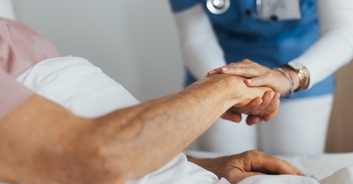Ecstasy is still the drug of choice among many clubbers. Yet it's still very much illegal in most parts of the world. Despite this, it doesn't have as bad a reputation as other hard drugs, such as heroin, crack cocaine and methamphetamine. Maybe that's because MDMA often stimulates feelings of love and blissful contentment among its users, lowering aggression and curbing violent and deviant impulses. Or maybe it's because it's less addictive than these other drugs.
Despite its comparative merits, it's clear that a widespread social acceptance of ecstasy is a long way off, even taking into account the fact that the legalisation of marijuana is a hot-button topic right now.
But is all that about to change? Could MDMA have other, potentially lifesaving applications? Researchers at the Multidisciplinary Association for Psychedelic Studies certainly seem to think so. In fact, they reckon that MDMA could be used to cure seriously debilitating mental illnesses, such as depression and PTSD, instead of helping clubbers to stay up grinding their teeth and grinding on the dance floor.
The pilot study involved 22 military veterans, three firefighters and a police officer, all of whom had been diagnosed with post-traumatic stress disorder. These 26 individuals were each given MDMA in doses of either 30mg, 75mg or 125mg. The dosages were administered to patients during three eight-hour long psychotherapy sessions, in which the patient lay on a futon surrounded by candles and fresh flowers, with soothing music playing. Two therapists would sit at the patient’s side to monitor them, while the patients were encouraged to discuss their traumatic experiences if they felt comfortable enough. Researchers then learned that, on average, those people who had been given a higher dose of the narcotic experienced a greater decrease in PTSD symptom severity than those who had only been given 30mg.
One year after the conclusion of the study, 16 of the 26 participants had been cured of all PTSD symptoms, while two had renewed diagnosis. But there were still some drawbacks to the ecstasy regimen - and these were enough to make the scientists involved hesitate. Side effects of the use of ecstasy in the study included short periods of anxiety, headaches, tiredness, muscle tension and insomnia.
Among some participants, after the initial wave of euphoria, there was also a temporary increase in preoccupations with suicidal thoughts. One unfortunate participant, who had a history of suicide attempts, was admitted to hospital and placed on suicide watch before the study was completed. However, it should be noted that almost all currently available antidepressants (Citalopram, Fluoxetine and Sertraline to name just a handful) include side effects which vary from patient to patient. Often, pharmaceutical antidepressants can end up leading to an increase in suicidal feelings and behaviour.
Furthermore, the doses of MDMA were carefully administered by medical professionals; so someone suffering from mental health issues shouldn't try to self-medicate, not least since the MDMA was taken in conjunction with rigorous therapy sessions - meaning it acts as a catalyst to the benefits of counselling and therapy, rather than a cure in itself.
Commenting on her findings, study leader Dr Allison Feduccia stated: "Our study suggests that MDMA might help augment the psychotherapeutic experiences and may have a role to play in the future treatment of PTSD. However, we would certainly not recommend that individuals try these drugs for the treatment of psychiatric disorders without the support from trained psychotherapists." Dr Michael Bloomfield, clinical lecturer in general psychiatry at University College London, concurred, stating: "Survivors of trauma who are experiencing PTSD should not try this on themselves because of the risks associated with street ecstasy and the need for good quality psychiatric care including psychotherapy in recovering from PTSD."
But how did the participants feel about the study personally? The reaction from veterans and servicemen alike seems to have been overwhelmingly positive, and many of the participants reported feeling as though they had made a significant recovery. Former marine and Iraq war veteran Nigel McCourry had been haunted by a friendly fire incident which occurred during his deployment and had struggled with alcohol abuse, thoughts of suicide and violent rages afterwards. As a result of the study, McCourry claims "I was actually able to forgive myself."
He added: "When it kicked in, it was like an epiphany. I could see all these things from combat I was afraid to look at before, and I had a totally new perspective. I relived the parts of me I had lost. I realised I had viewed myself as a monster, and I was able to start to have some compassion for myself. It was a turning point, and for the next year I continued to get better ... There are also still some challenges I have to face from time to time related to the PTSD. But now I am able to work through them without getting stuck."
However, this isn't the first time narcotics have been shown to have a mental health benefit. In fact, there's evidence that magic mushrooms could help to treat clinical depression.










